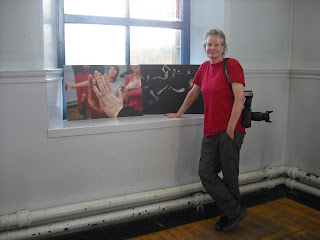The consultation on the code of conduct for public processions closed on 17th September. Green Councillors submitted a response which included comments on the proposal regarding use of George Square as appropriate assembly or dispersal
point for large or high risk procession.
There
is a need to strike a suitable balance between the natural desire of groups to be in a highly visible part of the city and the
natural wishes of the surrounding residents to have reasonable access
to facilities such as public transport without having to wait for the
passage of parades.
George
Square should continue to be used as an assembly and dispersal point.
There is a requirement to protect human rights and to promote
democratic principles which encourage citizens to engage in a range
of peaceful activism to express their opinions.There
is a need to maintain the public's right to hold rallies and marches
which focus on the main civic square in the city and at the seat of
Local Government.
There
is a consultation ongoing at the moment about the possible change to
the layout and design of the George Square. It
is anticipated the pedestrianisation of the
square will resolve traffic management issues and it is hoped can reduce
the number of vehicles in the area.
The
city is an air pollution hotspot and use of George Square can
discourage travel by car as public transport options, particularly
the subway and rail network are close at hand. George Square should be
a safer gathering place for people to gather as a result of designs
being brought forward.
Further
data collection is needed on the use of George Square for assembly
and dispersal, and the impact this has on the city, compared to other
locations. This can inform the requirements for stewarding and event
management arrangements for each procession using George Square.
The
Council should be concerned with promoting the engagement of
Glasgow’s citizens in the cultural and political life of the city.
This is particularly important as part of reaching out to young
people who may feel that they are excluded on the basis that they
cannot vote, lack paid work or support minority causes. George Square
is the historic meeting place for activities to protest against
injustice, cuts to services, change to government policies, or international events e.g. bombing of Iraq.
George
Square was originally a private garden which had its railings taken
down by the public and it has a proud tradition as a meeting place
for working class struggle against oppression. In a time of economic
uncertainty and global environmental crisis, this main
civic arena should be protected as a safe place for disenfranchised
and issue-based groups to gather and make their voice heard.




















